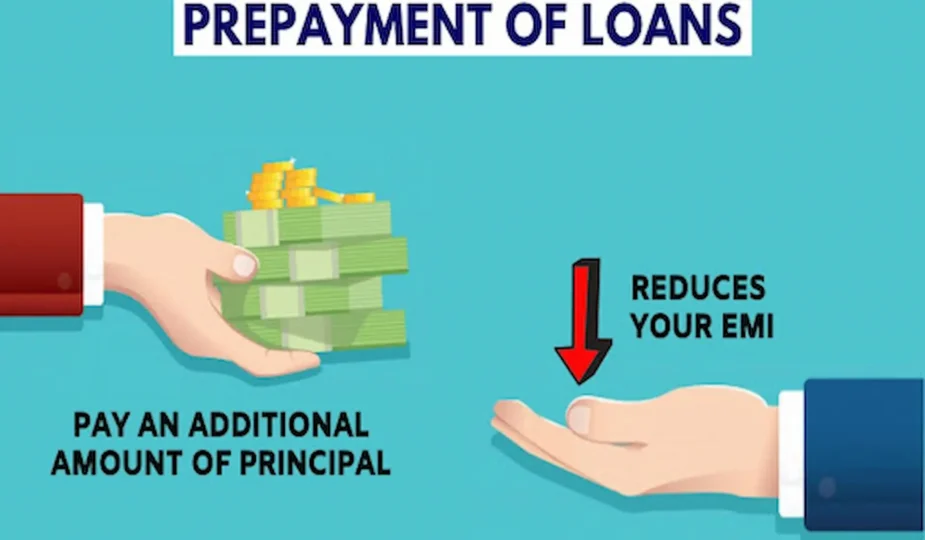
£1000 Loan Repayment Strategies to Stay in Control of Your Finances
Managing debt effectively can often seem like an overwhelming task, especially when it comes to smaller loans like £1000 loans. While the sum may not appear significant at first glance, improper management or failure to repay on time can lead to financial difficulties. The key to staying in control is understanding your repayment options and implementing practical strategies to ensure your finances remain intact. Here are actionable tips to help you manage and repay a £1000 loan while safeguarding your financial future.
Before diving into repayment strategies, it’s essential to understand what a £1000 loan entails. These loans, typically short-term, can either be unsecured personal loans or payday loans. Unsecured loans are ideal for individuals who need a small sum of money without putting up collateral, while payday loans are usually short-term loans aimed at covering immediate expenses.
What is a £1000 loan?
A £1000 loan is a type of borrowing where the lender provides you with £1000, which you must repay within a specified timeframe. The loan amount and repayment terms depend on your loan type and the lender’s conditions.
Types of £1000 Loans Available
There are two main types of 1000 pound loans: secured and unsecured. A secured loan requires you to put up collateral, such as a car or property, in exchange for the loan. On the other hand, unsecured loans don’t require collateral but may come with higher interest rates. Payday loans, though generally easy to obtain, carry high interest rates and should be approached cautiously.
The Importance of Repayment Strategies
Borrowing £1000 is not just about getting the money but how you plan to repay it. Without a solid repayment strategy, you risk slipping into a cycle of debt that becomes increasingly difficult to manage.
Why Having a Clear Repayment Plan is Essential
A clear repayment plan ensures you don’t fall behind on your payments and accumulate unnecessary interest. Without a strategy, you may face late fees or even damage your credit score, which could hinder future borrowing opportunities.
The Consequences of Missing Payments
Falling behind on payments can lead to a host of negative consequences. Lenders may charge late fees, and the interest on your loan could increase, resulting in you paying back much more than originally agreed. Additionally, missed payments are reported to credit bureaus, which can damage your credit score and make future financial ventures more challenging.
Budgeting for Loan Repayments
Creating a realistic budget is one of the best ways to ensure you stay on track with repaying your £1000 loan. By allocating a portion of your monthly income towards the loan repayment, you can avoid the stress of last-minute payments or scrambling for funds.
How to Create a Realistic Repayment Plan
Begin by assessing your income and monthly expenses. Prioritise the essentials, such as rent, utilities, food, and loan repayments. Once you know your costs, set aside a fixed amount to repay the loan. A good rule of thumb is to pay more than the minimum monthly payment whenever possible. This reduces the overall interest you will pay over time.
Tips for Managing Monthly Expenses
To make room for loan repayment, consider cutting back on discretionary expenses. For instance, dining out less, reducing entertainment costs, or minimising impulse purchases can free up extra funds. Also, try to avoid taking on any new debts until the loan is fully repaid to ensure you’re not spreading yourself too thin financially.
Exploring Different Repayment Methods
Different repayment methods work better for various individuals depending on their financial situation. Whether you prefer to pay in lump sums or make instalments, the goal is to stay consistent with your repayments.
Installment Payments
For those who don’t have a windfall of money coming their way, sticking with regular instalment payments might be the best option. Breaking the loan into smaller, manageable payments helps you avoid overwhelming yourself financially. You may be able to negotiate with your lender for more favourable terms if necessary.
Automatic Deductions
Set up automatic payments with your bank to ensure you never miss a due date. Automating your repayments can help you stay organised and disciplined, providing you stick to your loan repayment schedule without needing constant reminders.
Avoiding Common Loan Repayment Mistakes
While it may seem straightforward, repaying a £1000 loan can have pitfalls. Avoid these common mistakes to ensure your financial health remains intact.
Failing to Track Loan Payments
Neglecting to track your loan payments can quickly lead to confusion. Always record when payments are due and what amounts you’ve already paid. Many lenders offer online portals that make tracking your loan balance and upcoming payments easy.
Borrowing More to Cover Existing Debt
If you’re struggling to make your repayments, borrowing additional money to cover the loan may seem tempting. However, this only exacerbates the situation by increasing your overall debt. Instead, focus on finding solutions like renegotiating payment terms or seeking professional financial advice.
Strategies for Staying on Track
Staying organised and motivated is key to successfully repaying your £1000 loan. Use these strategies to remain focused and on top of your payments.
Setting Reminders for Payments
In today’s busy world, it’s easy to forget payment deadlines. Set reminders on your phone or use financial apps that notify you of upcoming payment dates. This will help you avoid late payments and stay disciplined with your repayment schedule.
Building an Emergency Fund
While it’s not directly related to your loan repayment, building an emergency fund can protect you from future financial stress. Having a financial cushion means you won’t have to rely on credit or loans if unexpected expenses arise.
Reviewing Your Finances Regularly
Periodically review your finances to ensure you’re on track with your loan repayment. This will allow you to adjust your budget if needed or make additional payments when possible. Regular reviews also help you spot any potential financial risks before they escalate.
The Impact of Loan Interest Rates
When considering a £1000 loan, it’s crucial to understand how interest rates affect your total repayment amount. Even small loans can accrue significant interest, especially if the loan is unsecured or from a high-interest lender.
How Interest Affects Loan Repayment
Interest can increase the total amount you’ll repay over the life of the loan. For instance, a £1000 loan with a 10% interest rate would result in an additional £100 in interest, making the total repayment £1100. This extra cost could be much steeper if the loan has a higher rate. Always review the interest rate before committing to any loan, and if possible, seek loans with lower rates.
Reducing Interest Payments
Aim to pay off your loan faster to minimise the total amount paid over time. The quicker you pay off the principal, the less time interest has to accumulate, reducing the total interest. Many lenders offer options for making extra payments without penalty, so explore this if you can afford it. This approach saves you money and helps clear the loan off your balance sheet.
The Role of Credit Scores in Loan Repayments
Your credit score plays a vital role in the loan process and impacts your repayment strategy. While 1000 pound loans are typically small amounts, your credit score can influence the terms of your loan, including the interest rate and the flexibility of your repayment options.
How Credit Scores Impact Loan Terms
A higher credit score generally means better loan terms, including lower interest rates. On the other hand, a poor credit score might result in higher interest rates or the need to provide collateral to secure the loan. Regular, timely loan repayments can improve your credit score over time, opening the door to better loan terms.
How to Improve Your Credit Score
If you’re concerned about your credit score affecting future loans, consider making your loan payments consistently on time. If possible, avoid taking on additional debt while repaying your current loan. Keeping a low credit utilisation ratio — meaning you’re using a small portion of your available credit — can also boost your credit score and position you for better terms when taking out future loans.
Conclusion: Staying in Control of Your Finances
Repaying a £1000 loan doesn’t have to be a stressful experience. With careful planning, realistic budgeting, and the right strategies, you can stay in control of your finances and successfully pay off the loan. Understanding your loan terms, exploring alternative repayment methods, and utilising financial tools are all key components of an effective repayment strategy. Additionally, being proactive and mindful of your credit score ensures you’ll be better equipped to manage future financial challenges.
By implementing these strategies and staying disciplined, you’ll clear your loan and set yourself up for financial success in the future. Whether you choose lump sum payments, instalments, or automated payments, the key is to remain consistent and take control of your debt.

